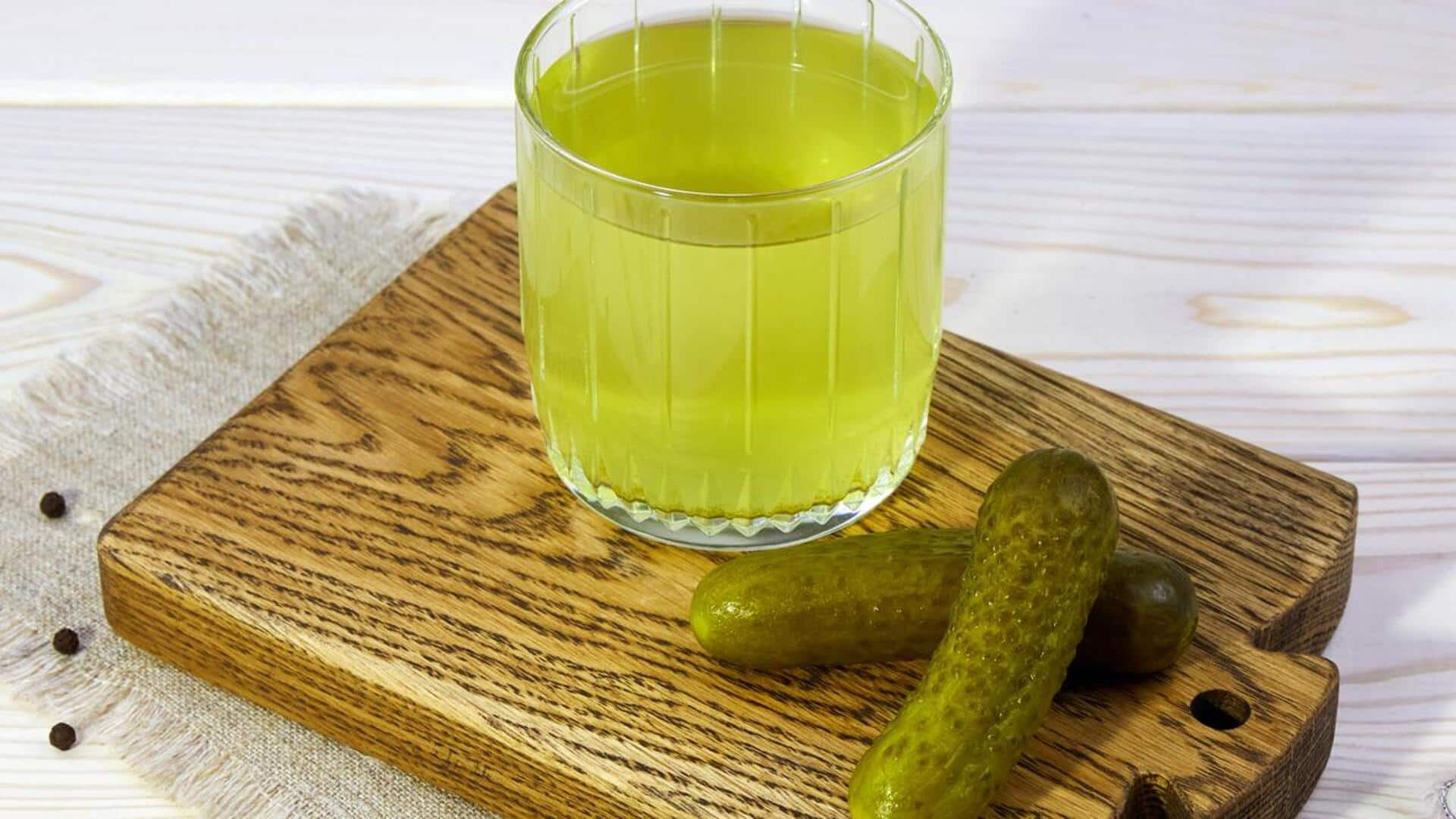
Busting myths about pickle juice and cramps
What's the story
Countless athletes and fitness buffs claim nothing beats pickle juice for halting muscle cramps mid-squeeze. This conviction has catapulted pickle juice to folk hero status, the trusted sidekick in the battle against sudden muscle spasms. But does science support this claim? We're busting myths about pickle juice and cramps. Let's separate fact from fiction.
Instant fix
Myth 1: Instant relief
The claim that pickle juice relieves muscle cramps in under 2 minutes is a bit of a fitness urban legend. In reality, studies show that while pickle juice might slightly reduce cramp duration, it's not the instant fix many people think it is. The benefit might come from the vinegar, which triggers a reflex when it hits the throat and not from any direct effect on the muscles.
Hydration hero
Myth 2: Better than water
A common misconception is that pickle juice is superior to water in preventing or alleviating cramps because it contains electrolytes. While hydration is key to preventing cramps, there isn't any strong scientific evidence to support the notion that pickle juice is more beneficial than plain water or other electrolyte-rich beverages. Drinking enough water is the key.
Electrolyte elixir
Myth 3: Essential electrolytes
Many people swear by pickle juice for cramps, thanks to its high sodium and electrolyte content. But, hold on! While electrolytes are important for muscle function and hydration, too much can actually be harmful. Plus, most people get enough electrolytes from their regular diet. So, you don't need to chug pickle juice to prevent cramps!
Research reality
Myth 4: Scientifically proven
Despite anecdotal claims, scientific research does not conclusively support pickle juice as a remedy for muscle cramps. While some studies suggest potential benefits, they are far from conclusive. Health experts recommend proven cramp prevention and treatment methods, such as stretching, hydration, and a balanced diet. It's always best to seek advice from health professionals for effective strategies against muscle spasms.